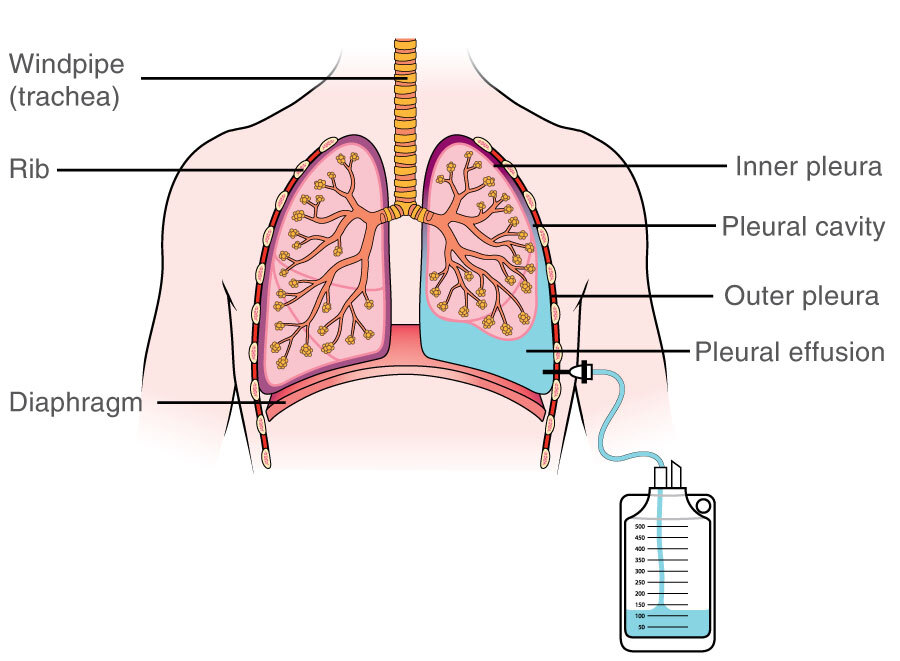
Pleural surgery refers to surgical procedures performed on the pleura, which is the thin membrane that covers the lungs and lines the chest cavity. Here's some information about pleural surgery in simple words:
Pleural surgery involves surgical procedures performed on the pleura to treat conditions like pleural effusion, empyema, or to obtain tissue samples for diagnostic purposes. These surgeries are essential for managing pleural-related issues and improving lung function. If someone requires pleural surgery, it's crucial to consult with a qualified healthcare professional to understand the specific procedure, its benefits, and potential risks.
Pleural surgery is done for various reasons, including:
Pleural Effusion: When excess fluid accumulates between the two layers of the pleura, causing pressure on the lungs, surgery may be performed to drain the fluid and relieve breathing difficulties.
Empyema: In cases of pleural effusion with an infection (empyema), surgery may be necessary to drain the infected fluid and clean the area.
Pleural Biopsy: Pleural surgery can be used to obtain a tissue sample from the pleura for diagnostic purposes. This helps in identifying lung diseases or cancer.
Thoracentesis: This is a less invasive procedure where a needle is inserted through the chest wall to drain excess fluid or air from the pleural space.
Video-Assisted Thoracoscopic Surgery (VATS): In VATS, a small camera and specialized surgical instruments are inserted through tiny incisions in the chest to view and access the pleura. It allows for more extensive procedures with minimal damage to surrounding tissues.
Thoracotomy: In more complex cases, a thoracotomy may be performed. During this surgery, an incision is made in the chest wall to gain direct access to the pleural space, allowing for more extensive treatments.
In more complex cases, a thoracotomy may be performed. During this surgery, an incision is made in the chest wall to gain direct access to the pleural space, allowing for more extensive treatments.
As with any surgical procedure, pleural surgery carries certain risks, including bleeding, infection, complications related to anesthesia, and damage to surrounding organs. However, these risks are generally minimized when the surgery is performed by experienced surgeons in appropriate medical settings.
As with any surgical procedure, pleural surgery carries certain risks, including bleeding, infection, complications related to anesthesia, and damage to surrounding organs. However, these risks are generally minimized when the surgery is performed by experienced surgeons in appropriate medical settings.